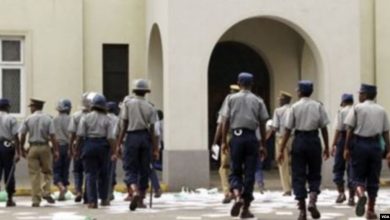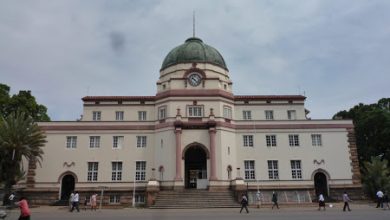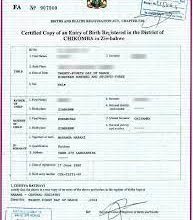Confusion over provincial councils qualification, as Zanu PF includes male candidates

Zanu PF may find itself in a fix after announcing male candidates in its list for the Matabeleland North provincial council while the constitution states that only female candidates are eligible.
The ruling party published its list of 10 candidates in Matabeleland North which included about five males while in Bulawayo the party submitted an all-female list.
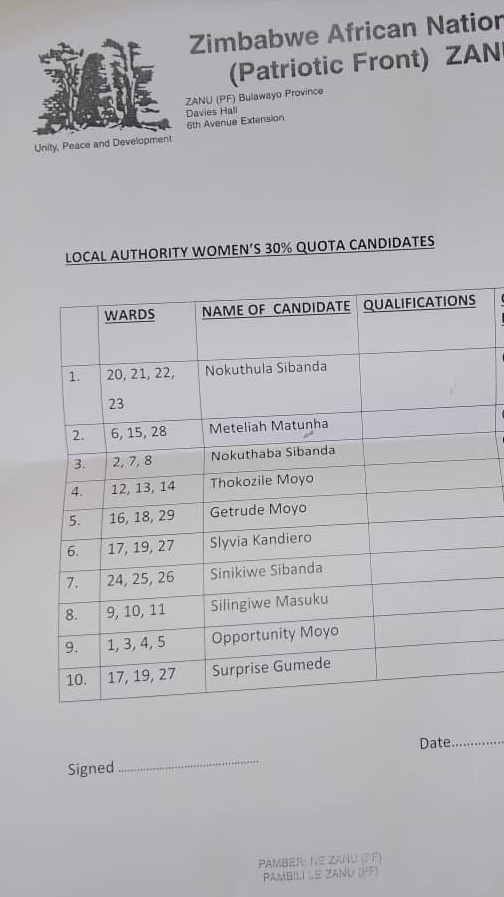
In an earlier communique, the party’s National Political Commissar, Dr Mike Bimha, advised each province in Circular 2 of 6/2023 on June 14, 2023, to elect ten candidates, five female and five male, despite a 2021 constitutional amendment that states only ten women should be on the party list.
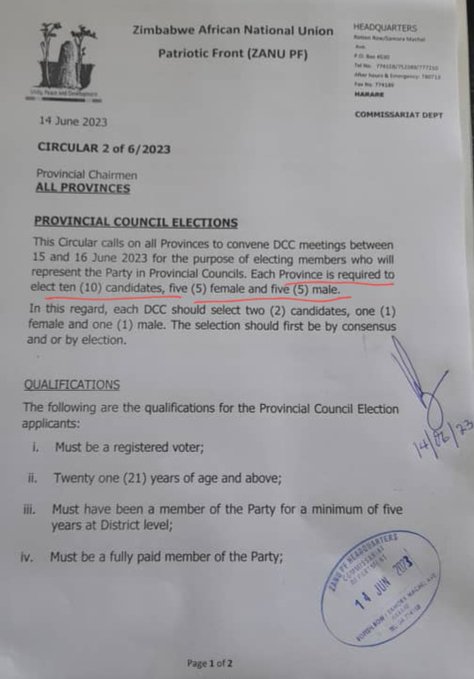
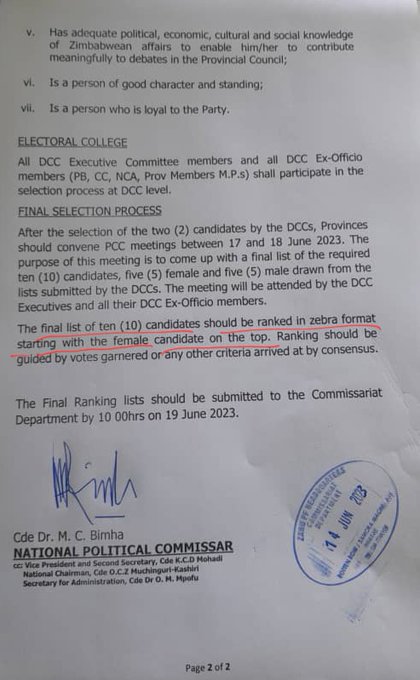
Although the qualifying age for provincial and metropolitan candidates is 21 years old, the Zimbabwe Electoral Commission (ZEC) has also advised political parties to adhere to this ‘only female requirement,’ as specified in the Constitution of Zimbabwe Amendment Act Number 2, promulgated in 2021, where men were barred from participating in the proportional representation election for the ten provincial or metropolitan council members.
The Constitution of Zimbabwe Amendment Act, Number 2 repealed Section 268 and 268 of the 2013 Constitution and replaced them with a new Section 268, encouraging female involvement while prohibiting men from serving on provincial or metropolitan councils.
The amended Section 268(1) of the Constitution now states: “There is a provincial council for each province and metropolitan council for each metropolitan province, consisting of: (a) a chairperson of the council, elected in terms of section 272; and (b) the mayors and chairpersons, by whatever title they are called, of all urban and rural local authorities in the province concerned; and (c) ten women elected by a system of proportional representation referred to in subsection (3).
Section 268(2) of the Constitution, as amended, provides: “A woman is qualified to be elected to a provincial or metropolitan council in terms of subsection (1)(c) if she is qualified for election as a Member of the National Assembly”.
While Section 268(3), as amended, stipulates: “Elections to provincial and metropolitan councils must be conducted in accordance with the Electoral Law, which must ensure that the women referred to in subsection (1)(c) are elected under a partylist system of proportional representation— (a) which is based on the votes cast for candidates representing political parties in the province concerned in the general election for Members of the National Assembly; and (b) in which women with disabilities are included”.
Political analyst and former cabinet minister, Professor Jonathan Moyo, acknowledged there was “confusion” on whether the new position in the 2021 constitutional amendment was “intentional, or a drafting mistake, or a typo, or even an act of God.”
He emphasised that Zimbabwe’s Constitution is non gender discriminatory, but the revised Section 268 discriminates against men in the election of members of the provincial or metropolitan council through proportional representation.
Prof Moyo said this was an urgent issue that required either attention, clarification or understanding keeping in mind that the Constitution is the primary and supreme law of the land, whose amendment involves a long and involved process of lawmaking.
“Because the provision that the 10 members of the provincial or metropolitan council elected by proportional representation must be women only is in the Constitution itself, it means that ‘the anomaly’ would not have been ‘corrected’ by or under the Electoral Amendment Act that Parliament failed to pass before the gazetting of the election proclamation on May 31, 2023,” he explained.
Prof Moyo noted that what should be ‘corrected,’ if need be, is the Constitution, through an amendment.
“So, in the final analysis, it may turn out that section 268(1) of the Constitution of Zimbabwe, as amended in 2021, is truly historic and gender progressive, whether intentionally or by mistake!” he summed.


